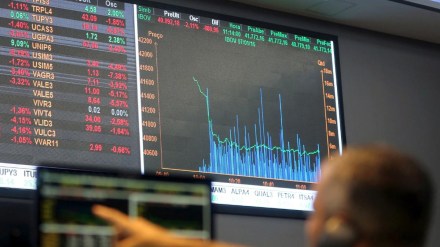Foreign institutional investors (FII) offloaded shares worth net Rs 1,093.47 crore, while domestic institutional investors (DII) added shares worth net Rs 736 crore on October 19, 2023, according to the provisional data available on the NSE.
For the month till October 19, 2023, FIIs sold shares worth net Rs 13,867.93 crore while DIIs bought shares worth net Rs 11,875.27 crore. In the month of September, FIIs offloaded shares worth net Rs 26,692.16 crore while DIIs added equities worth a net Rs 20,312.65 crore.
“Global equities slid on Thursday as risk aversion prevailed due to mounting worries over Middle East conflict, while the bond sell-off intensified, taking Treasury yields to fresh 16-year highs ahead of a keenly awaited speech from Fed Chairman. Nifty fell on October 19 with a downgap but filled the gap by recovering in the morning session. A late selloff again took the Nifty into negative territory. The 19,840-19,850 band is proving to be an overhead resistance for the Nifty and post a small recovery, it could again seek lower levels. On upmoves, Nifty could face resistance in the 19,680-19,730 band while 19,480-19,512 band could provide support,” said Deepak Jasani, Head of Retail Research, HDFC Securities.
On Thursday, the benchmark equity indices settled in the negative territory. The NSE Nifty 50 fell 46.40 points or 0.24% to settle at 19,624.70, while the BSE Sensex shed as much as 247.78 points to 65,629.24. The broader indices ended largely in red except for the Smallcap stocks. The Bank Nifty index shed 134 points, or 0.31% to settle at 43,754.50. Among the other sectoral indices, Metal, Financial Services, Pharma, Realty and Private Bank stocks ended in the red, while Auto, FMCG, Media and Consumer Durables added gains.
Foreign institutional investors (FII) or Foreign portfolio investors (FPI) are those who invest in the financial assets of a country while not being part of it. On the other hand, domestic institutional investors (DII), as the name suggests, invest in the country they’re living in. Political and economic trends impact the investment decisions of both FIIs and DIIs. Additionally, both types of investors – foreign institutional investors (FIIs) and domestic institutional investors (DIIs) – can impact the economy’s net investment flows.
